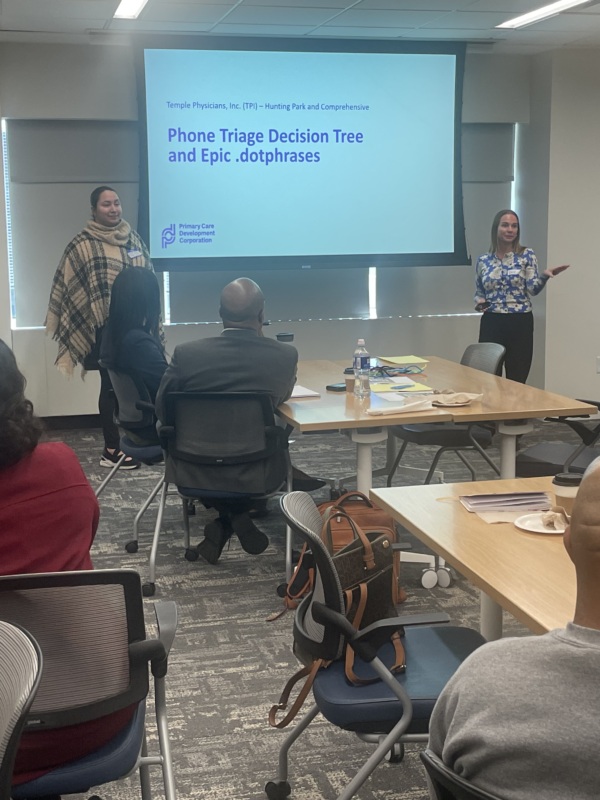Consulting and Training
PCDC provides consulting, practice coaching, and training to strengthen providers’ ability to offer effective, responsive, and patient-centered care.
PCDC provides consulting, practice coaching, and training to strengthen providers’ ability to offer effective, responsive, and patient-centered care.

We train staff at all levels to build the knowledge, confidence, and skills required to improve care and health equity. Trainings use adult learning theory and are evidence-based, customized to meet the audience’s needs, and delivered using highly interactive and experiential practices.
We coach practices and care teams through changes in workflows, operations, and regulatory requirements to enable high-quality, whole-person care.
We consult with organizations to develop creative, actionable solutions to expand their reach and impact, prepare for changes in reimbursement models, and solve barriers to sustainability.
Our expert staff works with health departments, practices, health centers, and networks to achieve their goals for staff development, impact, and sustainability.
Our team includes curriculum specialists, content experts, and skilled practice coaches. Each team member brings real-world experience in ambulatory and community settings; our solutions are practical and evidence-based. We partner with health centers and primary care practices to transform and sustain their operations.
Webinars
Webinars
Webinars
Client Spotlight
Technical Assistance